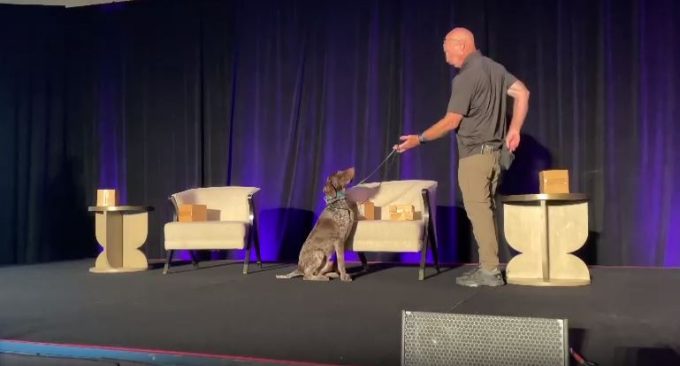Cargolux bans transport of disposable vapes from all flights
Cargolux has banned the transport of disposable electronic cigarettes, or vapes, on all its flights. The ...

Dogs can now be used to sniff out lithium batteries in shipments after just a month of training.
In a demonstration on stage at the CNS Partnership conference in Miami this week, German short-haired pointer Rodney decisively sat by a particular box, after having sniffed his way past others, and looked hard at his handler – the box contained two small batteries.
Rodney was trained by Global K9 Protection Group, whose main business is operating teams of dogs and handlers to find ...
Ecommerce air traffic to US set to grind to a halt as de minimis exemption ends
Maersk u-turn as port congestion increases across Northern Europe
Apple logistics chief Gal Dayan quits to join forwarding group
Widespread blanked sailings stave off major collapse of transpacific rates
Transpac rates hold firm as capacity is diverted to Asia-Europe lanes
Airlines slash freighter capacity post-de minimis, but 'the worst is yet to come'
Houthis tell Trump they will end attacks on Red Sea shipping
MSC revamps east-west network as alliance strategies on blanking vary
Maersk Air Cargo sees volumes fall as it aims for 'margin in favour of revenue'
India-Pakistan 'tit-for-tat' cargo ban sparks sudden supply chain shocks
Containership charter market feels the ripples from trade tensions
Gemini Cooperation carriers steam ahead of rivals in reliability stakes
Changing shipment origin won't wash: US CBP turns away whole truckloads
Expeditors reports healthy growth in a 'frenzied landscape of tariffs'
Tariff on imported products for drugs would be hard for US pharma to swallow
Atlas Air stays bullish on US change: 'we're flexible, we can fly to other markets'

Comment on this article